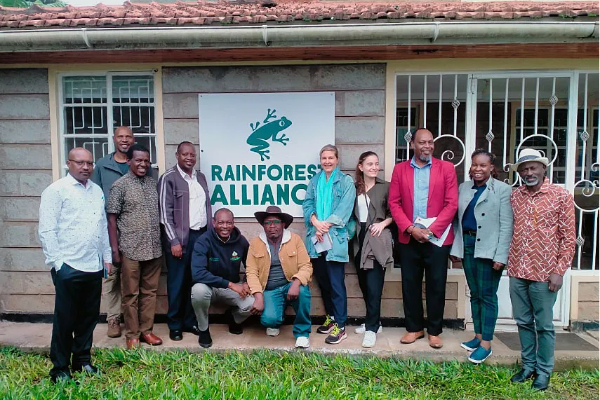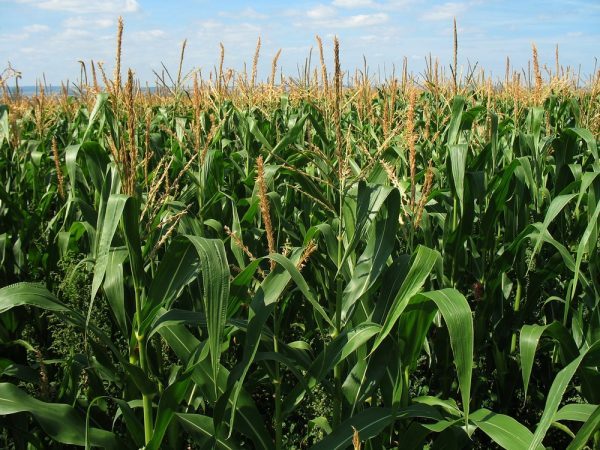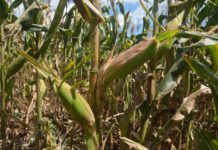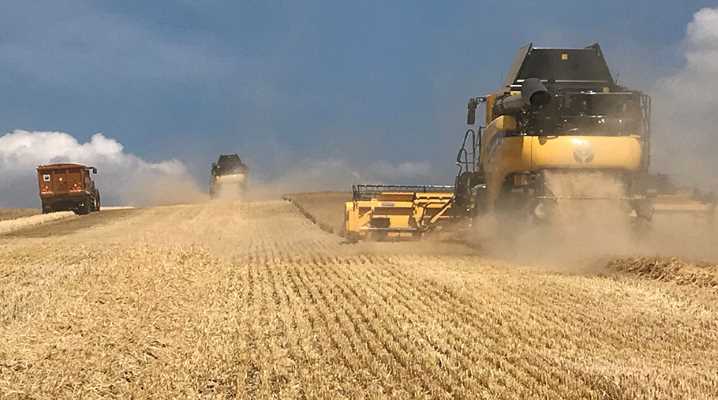The lush agricultural region around Mount Kenya, long known for coffee, tea and smallholder farming, is the scene of a new drive to mobilize private-sector finance in service of both environmental conservation and community livelihoods.
The Rainforest Alliance has announced a collaboration designed to channel investment-readiness and impact-finance frameworks into the landscape through its “Mount Kenya Sustainable Landscape and Livelihoods Program (MSuLLi)”.
Agriculture dominates land use and livelihoods in the region, yet key ecosystems here face mounting pressures from expansion of farmland, land degradation and climate variability.
The Rainforest Alliance points out that the region presents a strategic entry point for interventions that can simultaneously sustain natural capital, bolster ecosystem health and enhance incomes for local farmers.
At the heart of the effort is the MSuLLi programme, funded by the IKEA Foundation, which has the goal of supporting farming communities to conserve and manage natural resources while increasing income and delivering measurable environmental benefits.
To supplement the “traditional” sustainability interventions, the Rainforest Alliance has partnered with Clarmondial to pilot business- and finance-models aligned with broader landscape-level objectives.
Clarmondial brings to the table its proprietary impact frameworks — including the “Nature Framework” (developed in cooperation with the Stockholm Environment Institute) and a dedicated Gender Framework (developed with gender expert Dr. Cathy Rozel Farnworth) — enabling the partnership to ensure that biodiversity, climate adaptation, resilience, watershed health and gender considerations are baked in across the investment cycle.
As Clarmondial’s Kenya-based partner Herbert Hatanga explains: “There is no one-size-fits-all financial mechanism that can drive all desired environmental and social outcomes in a landscape.”
He adds that while SMEs, large corporates and value-chain actors in the region are showing willingness to implement sustainability programmes, what is required is “aligning the appropriate type of financing to the right actors, at the right time, and in accordance with the underlying business case.”
From the Rainforest Alliance side, Kenya Country Director Marion Nduta Ng’ang’a emphasises that “private sector finance can play a key role in enabling corporate actors in transitioning to more sustainable practices or scaling good agricultural practices. We are excited to continue building partnerships that support business cases that drive impact across the landscape.”
The pilot phase already shows early tangible outcomes: increased uptake of organic certification (or engagement toward transition), scaling of gender-responsive trainings, and benefits flowing both to women and men within companies and across smallholder-driven supply chains.
For local farmers and businesses in the Mount Kenya region, the initiative presents an opportunity to shift from traditional donor-driven programmes toward models where finance is tied to measurable impact and business value. By unlocking investment flows into sustainable agriculture, watershed management and biodiversity conservation, the initiative aims to deliver “better returns” for people, nature and commerce.
Looking ahead, the Rainforest Alliance and its partners are betting on the idea that aligning business-case logic with environmental and social outcomes can unlock deeper, more scalable impact in critical sourcing landscapes.
As the MSuLLi programme expands its reach, the hope is that the Mount Kenya landscape can serve as a replicable blueprint for other agricultural areas facing similar sustainability-and-livelihoods challenges.








